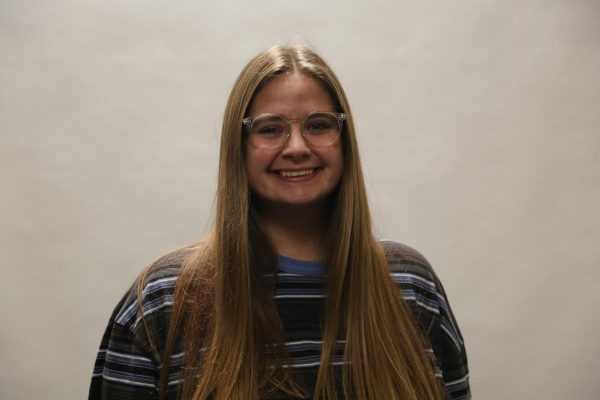When David Jackson Ambrose, M.A. ’15 graduated from St. Joe’s Writing Studies Program after already having a career in social work, he had no idea what lay ahead.
He didn’t expect this future: three published novels and a major literary award nomination.
“State of the Nation,” published in 2018, was nominated for a Literary Lambda Award in the Gay Fiction category. “A Blind Eye,” published in 2021, was named one of 2021’s Most Anticipated Books by Lambda Literary. And, “Unlawful DISorder” was published in 2022. A fourth novel is in the submission process, and he is currently working on his fifth.

All of Jackson Ambrose’s works are fictional and focus on the intersectionality of race, sexuality, class, gender, disability and domestic abuse, most of which take place in Philadelphia, but largely are inspired by people he has known and places he has been.
“There is just a rainbow of people who we all sort of share certain stories,” Jackson Ambrose said. “I’ve experienced domestic abuse when I was younger, but I wouldn’t have defined it as such because I was never injured. But it still was, looking back on it, and so I think those are the reasons that I’m compelled to do stories like this because we don’t ever see them.”
After beginning his undergraduate education at Montgomery County Community College and then finishing his bachelor of arts degree in Africana Studies from the University of Pennsylvania in 2013, Jackson Ambrose decided his next stop would be St. Joe’s. He chose St. Joe’s so that he could be close to home to take care of his mother, who died while he was a student here.
That choice sparked the beginning of his writing career.
“St. Joe’s saved my life,” Jackson Ambrose said.
Coming from a working class family, Jackson Ambrose said a career in creative writing wasn’t seen as practical.
“When I was working and supporting myself, I moved away from my creative spirit because I had to make a living,” Jackson Ambrose said. “So that part of me sort of died, and it was reenergized going to St. Joe’s, and then I dared to think that I could actually write, and perhaps make a living, doing that. I don’t think that would have ever resurfaced if I hadn’t gone to St. Joe’s.”
After graduating from St. Joe’s, Jackson Ambrose, who was raised in Norristown and West Chester, received his M.F.A. in creative writing in 2017 from Temple University. There, he expanded upon the thesis he had started at St. Joe’s under the direction of Ann Green, Ph.D., professor of English.
Jackson Ambrose said over the years, he had submitted shorter pieces to magazines that were always rejected, which left him with little faith that sending the manuscript of the thesis he had revised into his novel “State of the Nation” would be accepted by a publisher. He found the name of a potential publisher, The TMG Firm, in a book at Barnes & Noble.
“They accepted it, which was beyond my wildest imagination, so it just moved on from there,” Jackson Ambrose said. “And when that book received a nomination for Lambda Literary Award, it solidified to me that this could happen for me. I don’t think I would have had the faith to continue to do it if I hadn’t gotten a finalist nomination for that.”
Green said what she loves about her former student’s work is the way he writes about the working class and queer people of all races.
“The first book just really drew from all the different ways African Americans have been historically abused medically and did these very interesting things, and it really blew me away,” Green said. “The fact that he’s written three books since he graduated from the program is just amazing.”
Green said she appreciates that Jackson Ambrose is tackling such hard subjects in his work.
“I love that he treats race with complexity,” Green said. “Some characters are white passing as Black and some characters are Black passing as something else. And that is also an unusual thing to be able to do effectively in literature.”
Jo Alyson Parker, Ph.D., professor emerita of English, said from the get-go, Jackson Ambrose was interested in writing about marginalized voices, and his work as a Black and gay author highlights issues that continue to persist.
“What we’re seeing nowadays and in society is as more people of color have gained their voices, the backlash has gotten louder,” Parker said. “And we’re seeing white supremacist notions which are being normalized. So I think the kind of thing that David is doing is increasingly important in our fractured society.”
Jackson Ambrose said the relationships with his professors at St. Joe’s — which he described as more colleague-like rather than pupil-teacher — are what helped him identify his desires.
“They re-energized my writing spirit,” Jackson Ambrose explained. “The teachers there are just phenomenal. Because it’s really, it’s always about what you want to do first, and they tried to encourage whatever your desire is.”
Tenaya Darlington, professor of English and former director of the Writing Studies Program, said even 10 years after having Jackson Ambrose in class, she can recall the time he took the most creative approach to an assignment any of her students had ever done.
“The assignment was to do a writer’s autobiography, and David did a multi-dimensional family tree, where you would click on different branches and then there would be a story, and so that’s how he did his writer’s autobiography,” Darlington said. “Everyone else sat and gave this straightforward prose autobiography of how they got into writing and who impacted them and whatnot. It was so novel, and he pulled it up on the screen and he showed it to his whole class, and [the whole class] was blown away.”
Jackson Ambrose still has a career in social work, as well as an adjunct composition professor for first-year students at the Community College of Philadelphia. Jackson Ambrose said the last year and a half of being a professor is a full circle moment: He knows he was once a student who thought he couldn’t write, just like the students he has now.
“I love trying to convince people that they can write when they are convinced that they can’t,” he said.
Jennifer Natalya Fink, Ph.D., professor of English at Georgetown University and a queer author of eight published books, said she came to know Jackson Ambrose at the Lambda Literary Award Ceremony, where her book “Bhopal Dance” was nominated at the same time as “State of the Nation.” Fink said they sat next to each other at the 2018 awards ceremony and “struck up a conversation, and then a literary friendship.”
Fink described Jackson Ambrose’s place in writing as “resonant and rich.”
“I don’t think anyone has written about Philadelphia and its environs through these lenses of Black life, of Black queer life, and the way class race, ability, etcetera, shape that,” Fink explained, “so I think there’s a specificity and richness to that. He really captures the richness of Black queer culture in different time periods.”
To Jackson Ambrose’s readers, capturing the intersectionality of a multitude of identities seems like a difficult task. But Jackson Ambrose said for him, it’s not that difficult at all.
“It’s my experience,” Jackson Ambrose said. “It’s something that’s embedded in me because this is how I’ve lived my life, and these are the people that I’ve been around. That was the reason I was a little hesitant about obtaining an M.F.A., because I was afraid I might become too scholarly or academic, and I didn’t want to lose the writer’s edge that I had that I thought made my writing stand out from others. But, I mean, it was a silly notion, because your writing is your writing.”
This is the fourth story in a series by Allie Miller ’24 about issues that impact LGBTQIA+ people at St. Joe’s and in the Philadelphia area.














































